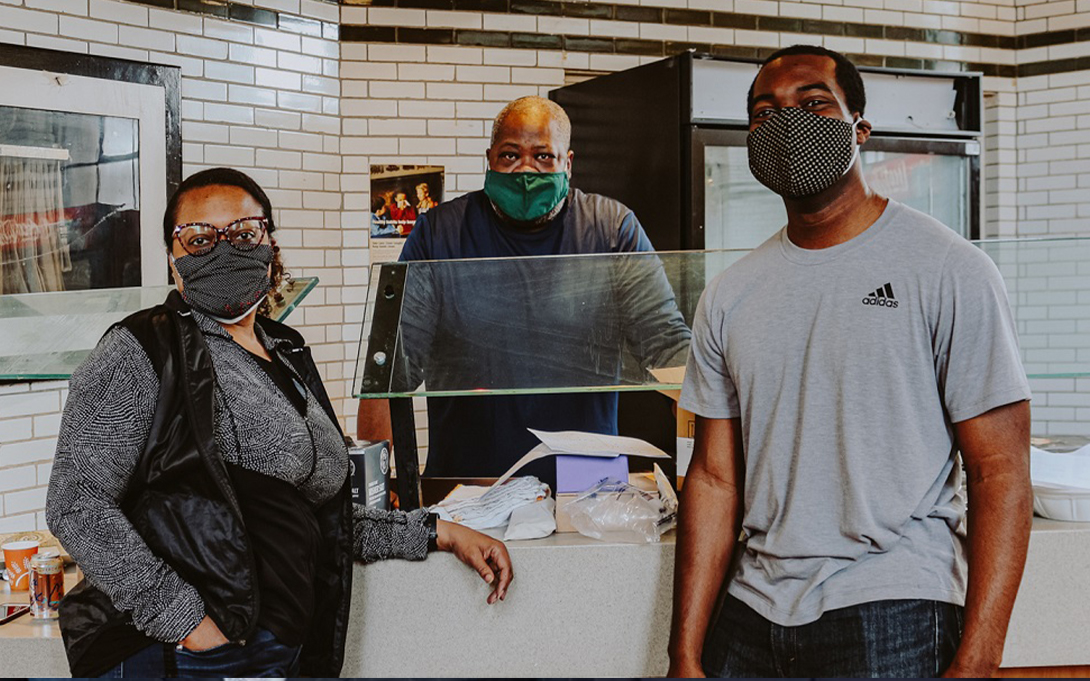
Small businesses in Detroit, as across the country, have had to make major adjustments to survive the COVID-19 pandemic economic downturn. A cadre of students from U-M have been able to work with many of these businesses through an internship program coordinated by the Detroit Neighborhood Entrepreneurs Project (DNEP) at the Ford School of Public Policy and +Impact Studio for Local Business (ISLB) at the Ross School of Business.
I have been fortunate to be a part of one of the multidisciplinary teams, collaborating with students from Ford and Ross as well as the Stamps School of Art & Design, the School of Information, and the College of Engineering.
We have the opportunity to apply our academic skills to the businesses’ real-world challenges – their pivots to new kinds of retailing, business practices and models – all thrust upon them by the pandemic.
Our multidisciplinary consulting teams have identified key areas where we can assist the businesses: Brand Identity, Marketing Campaigns, Operations, E-Commerce, Product Enhancement & Expansion, and Point of Sales Management. Not only are we growing in several professional capacities, but we are actively engaged with and helping to tell the stories of Detroit business owners.
We have been able to partner with Deirdre Roberson, owner of fashion line Eumelanin, to educate her consumers about the history of colorism and decrease stigma around melanin – the chemical that pigments black and brown skin and hair. We get to help Jerome Brown, owner of Detroit Soul, to bring his famous soul food into everyone’s bellies. We get to assist Shar Berry-Huff, owner of Luxe Skin Therapy, to share her skincare products based on the alchemy of precious elements with the world – products informed by her own skincare journey of struggling with psoriasis.
In addition to working with the businesses themselves, interns also have met with panels of small business owners, gaining insight into the inner workings of the Detroit small businesses ecosystem. Additionally, we are being advised by field experts, including consultants from McKinsey Detroit and U-M Alumni, and supported by Chris Mueller, Faculty Director for the +Impact Studio for Local Business; Justin Erickson, DNEP Program Manager; Christie Baer, Asst. Director, Center on Finance, Law & Policy; and U-M graduate students.
Casey Rheault, (BA '23, Art & Design), sums up his experience. “In classes for each of our respective schools, it can become so easy to slip into the way we are taught to approach problems. Being on interdisciplinary and collaborative teams with my peers within DNEP has already given me a new perspective on the different sides to a problem.”
The most exciting part for me, a student at the Ford School, is looking at the big picture goals of each business. We work with the business owners to investigate how their story informs their products and brand identity, and then together develop a strategic plan toward achieving those goals, turning a profit, and maintaining a smooth flow of operations.
For John Prisby (BBA ‘23), “The DNEP program has given me the opportunity to take what I have learned in the classroom and use it to make a tangible impact on people’s lives. It’s amazing to see how receptive and engaged every Detroit small business owner has been so far, and I’m very confident that the skills I learn this summer will be applicable to almost any career path I choose!”
While students are learning, the ultimate goal is to provide support and resources for small businesses that can have long term impact, foster sustainable growth, and ultimately build up the community and economy of Detroit. In pursuit of that goal, the connections we have built are priceless.
This article was written by Noelle Seward (BA '21, Public Policy)
More news from the Ford School